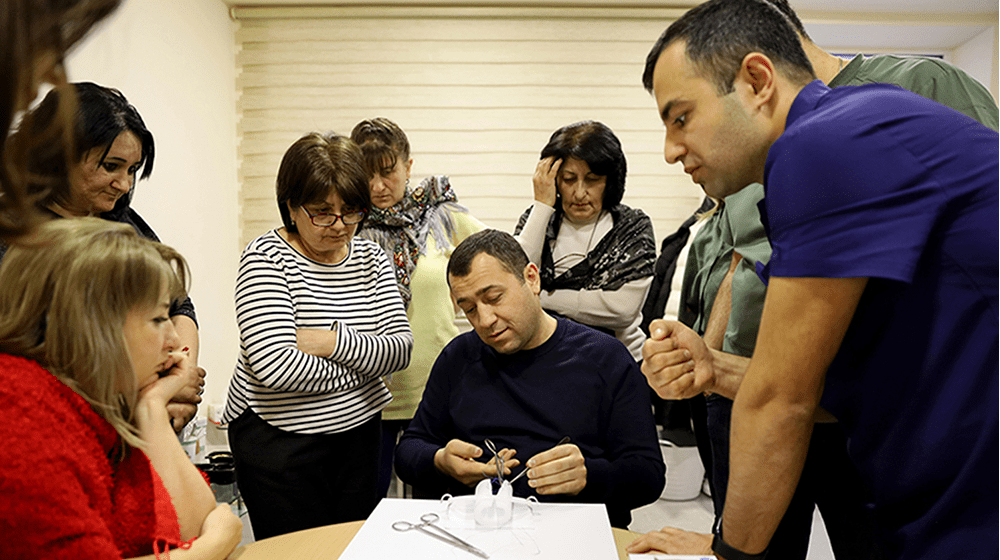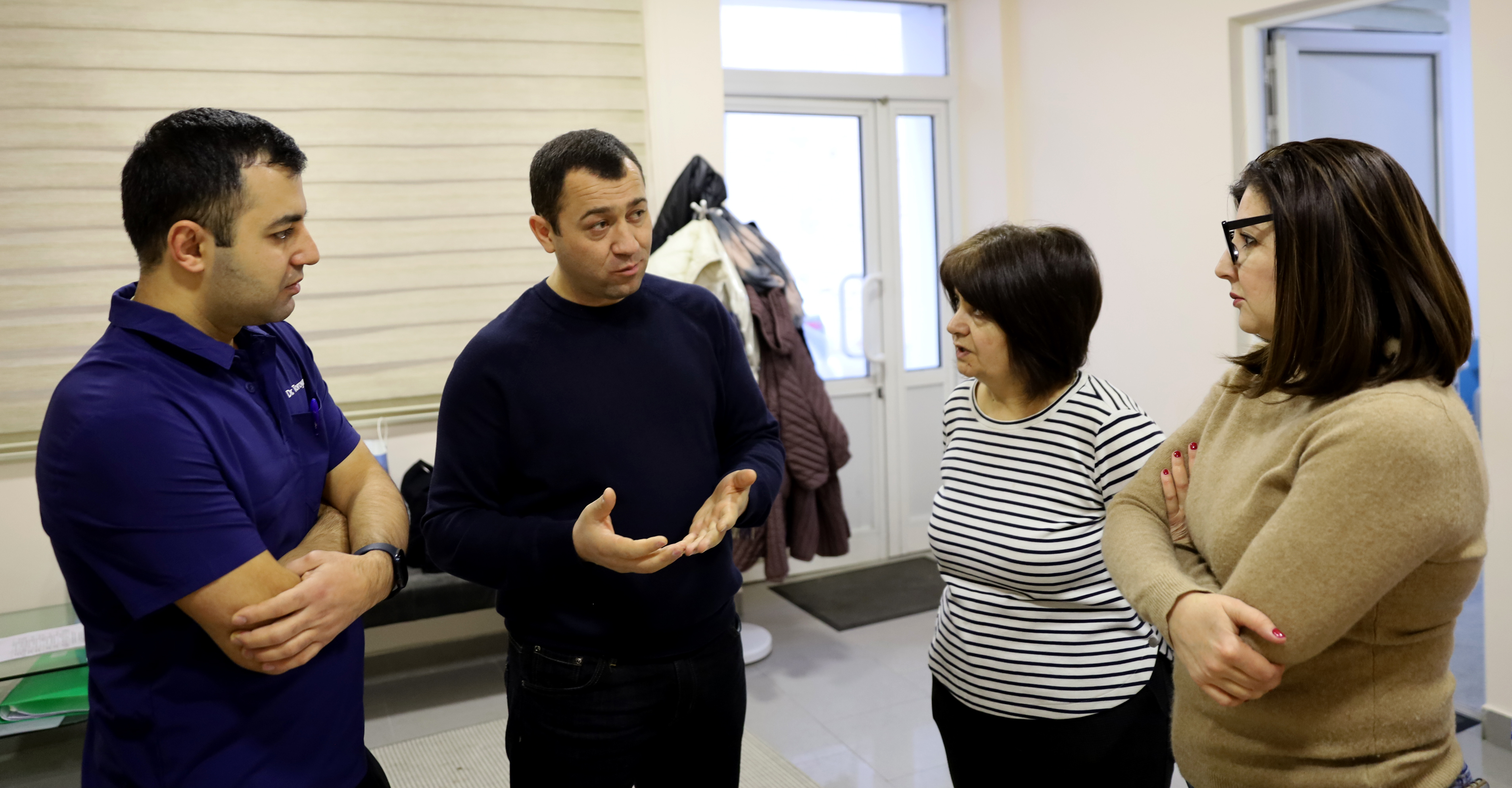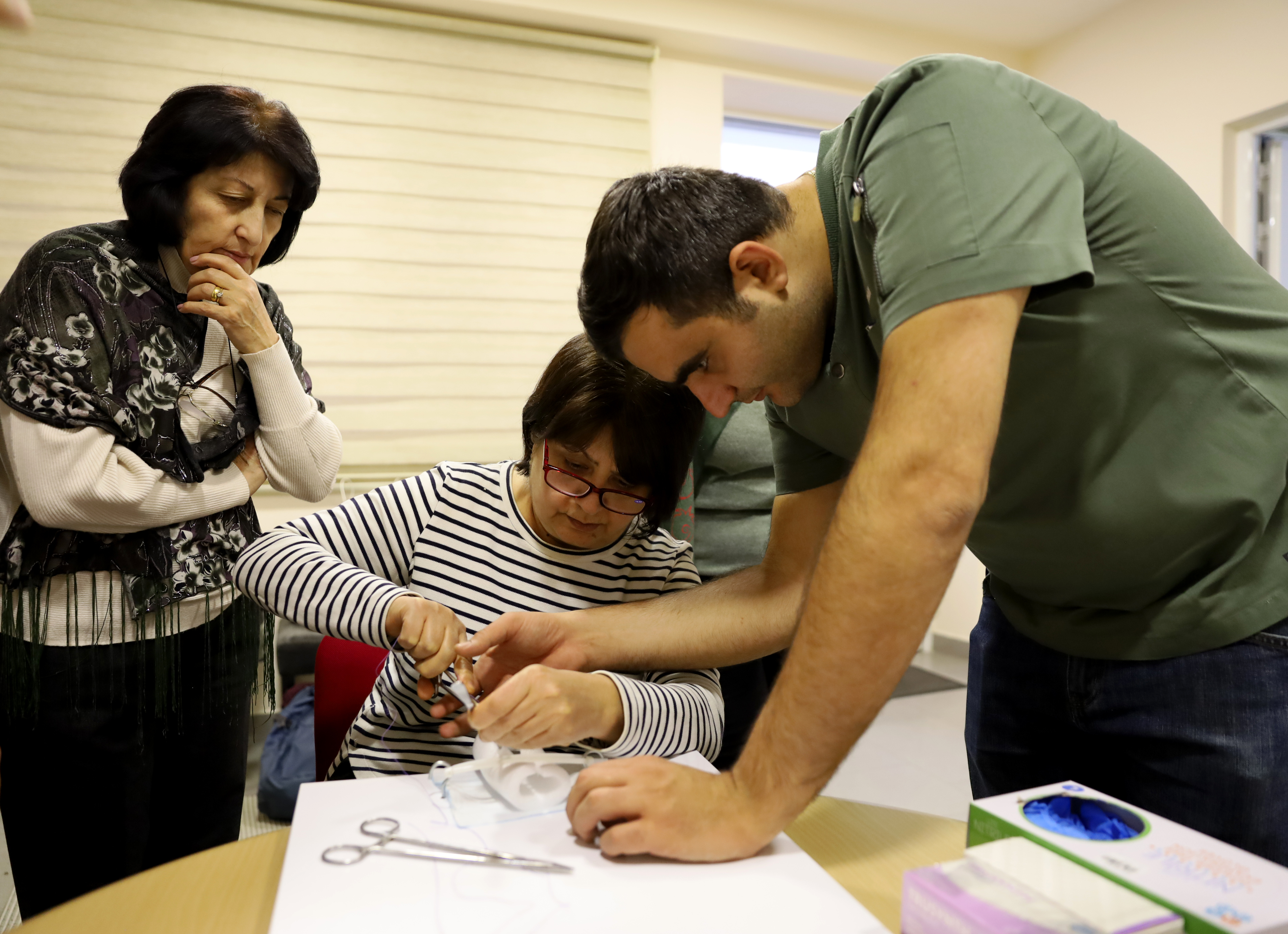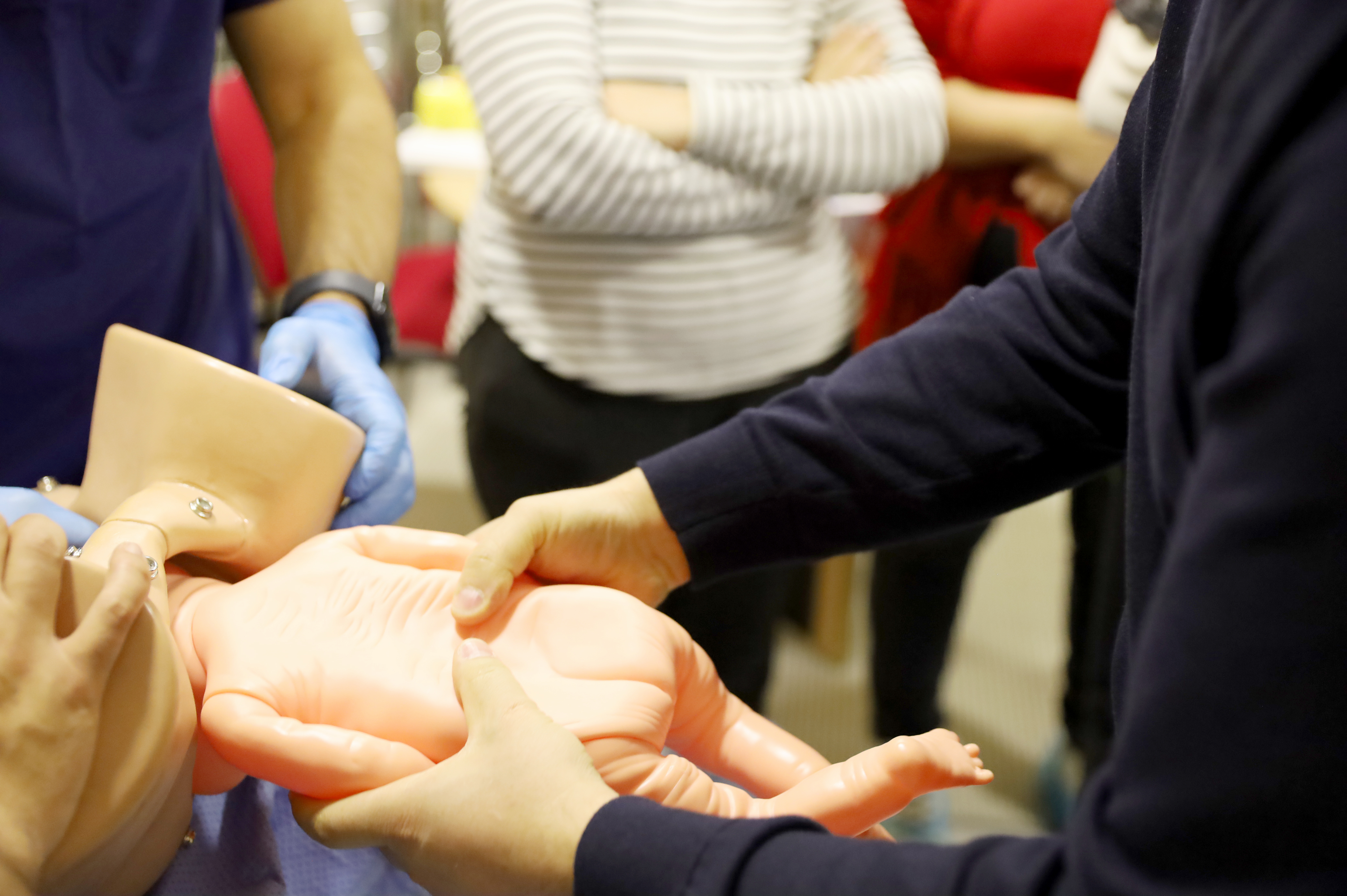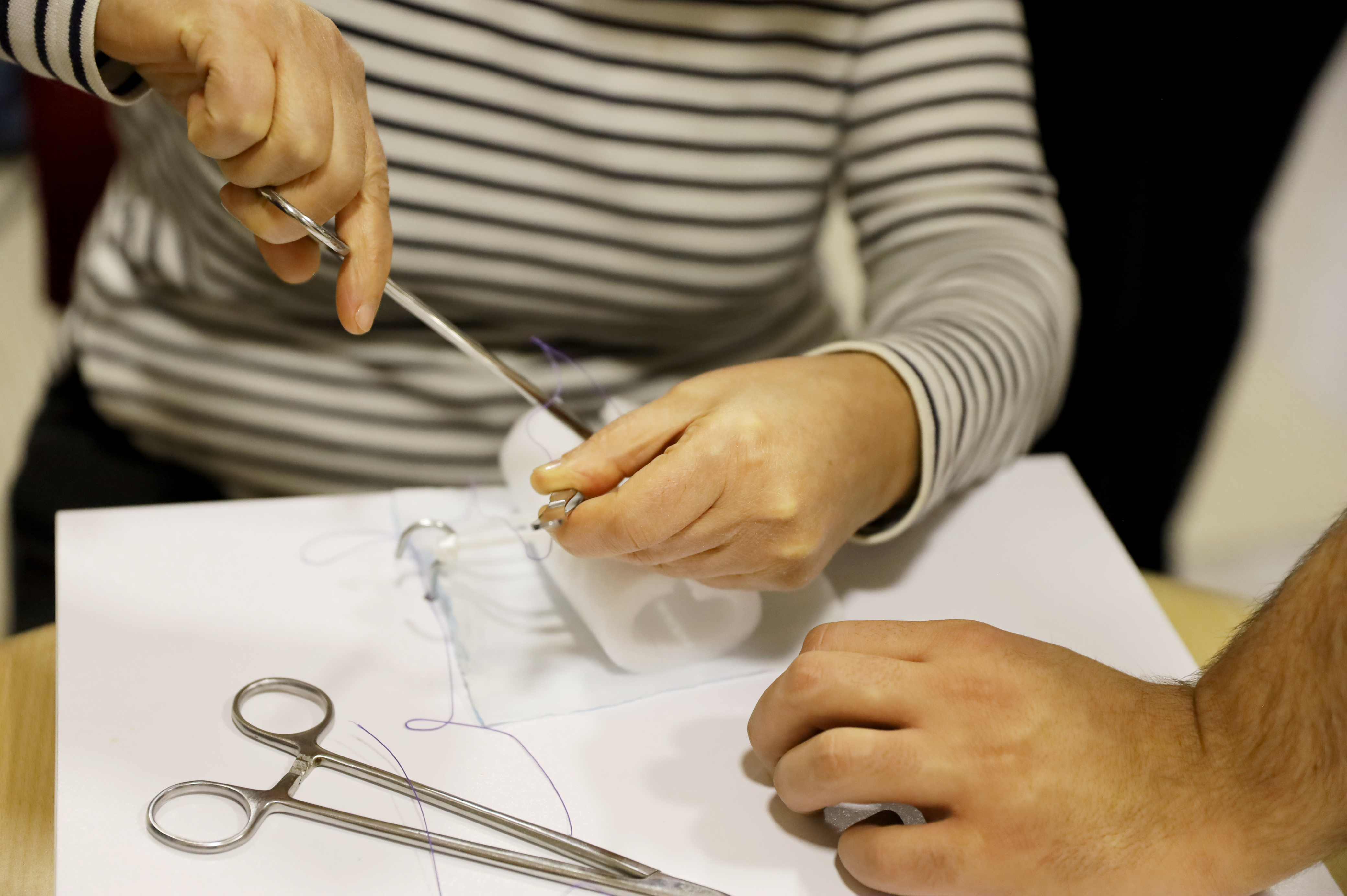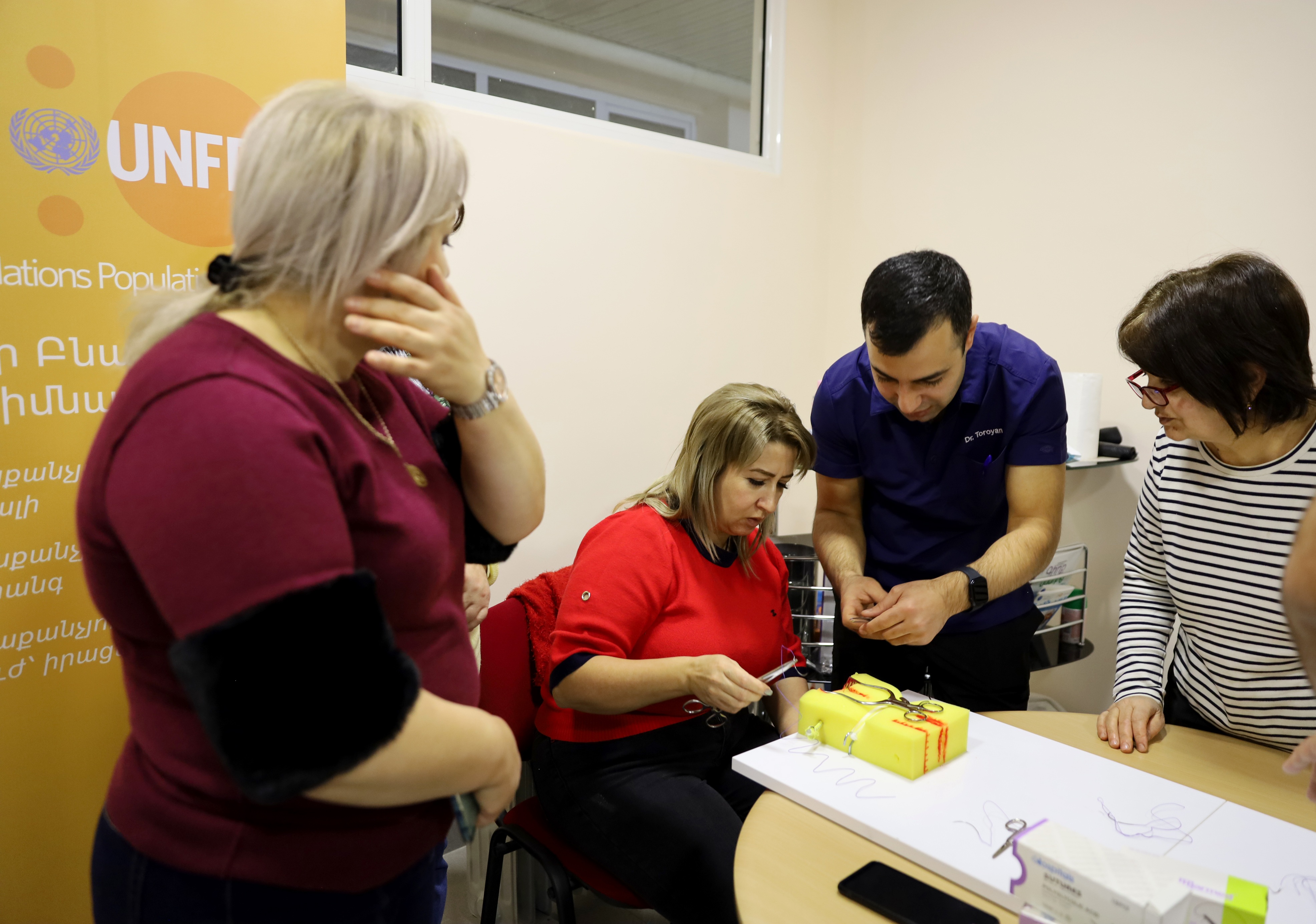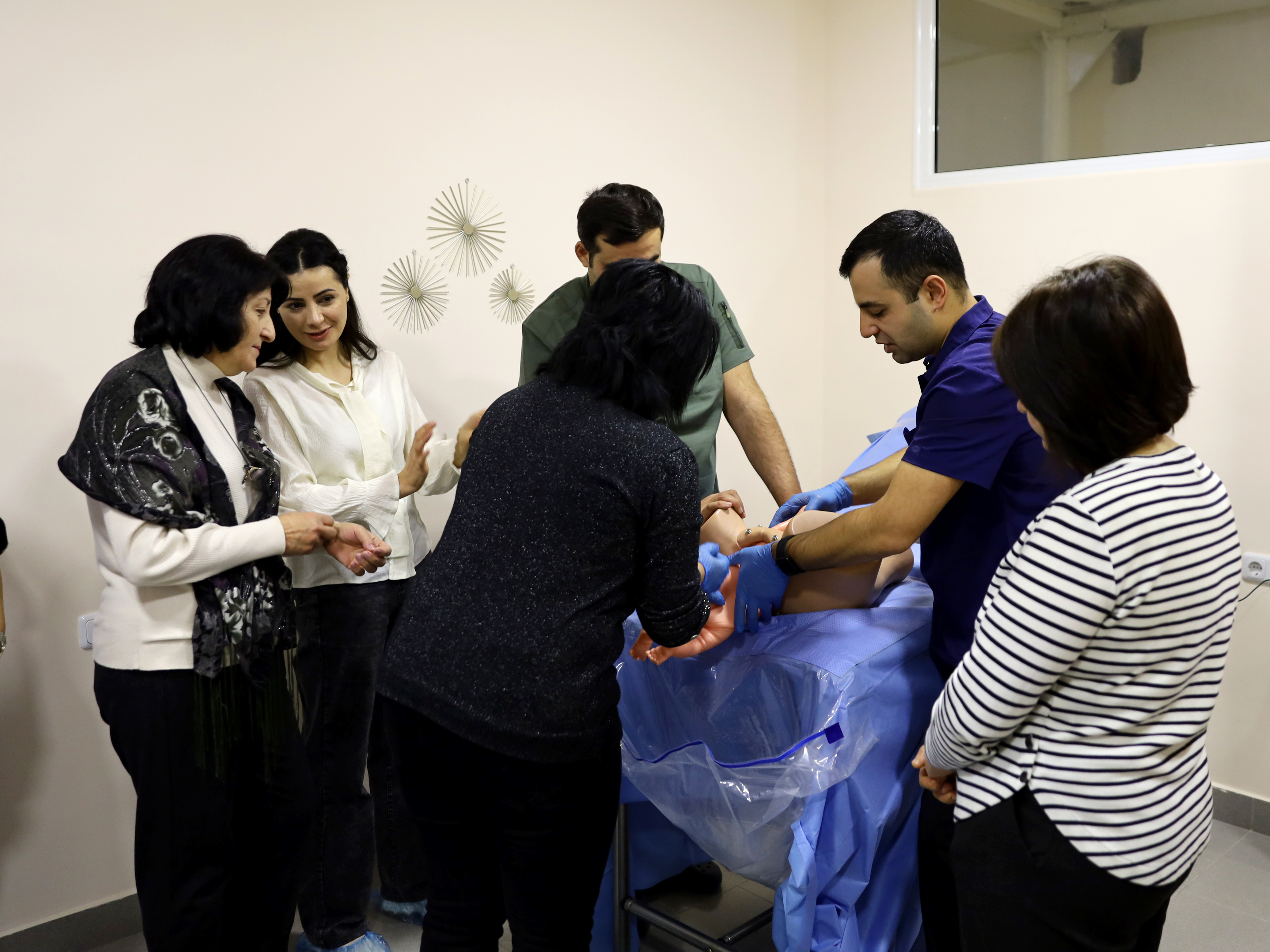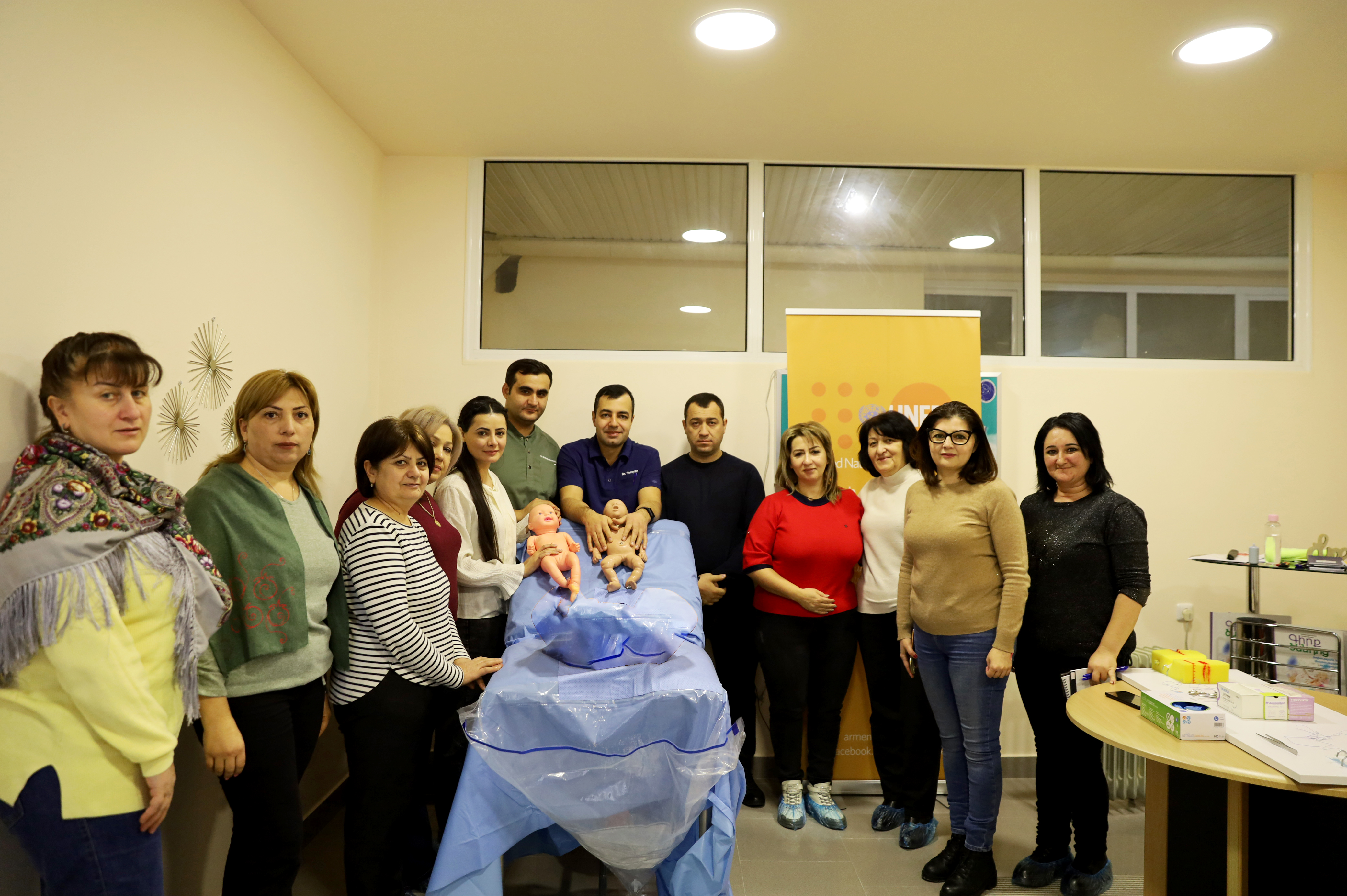
"The knowledge gained over these three days is crucial not only for doctors and midwives but also for nurses because our work is a team effort. During childbirth a team of professionals is required, not just one specialist. If everyone possesses this knowledge and is well-informed, the collective effort becomes more effective," said Arevik Harutyunyan, a midwife at Sevan Medical Center with 23 years of experience.
Mrs. Harutyunyan is among the specialists who gained knowledge and practical skills during the three-day training, where over fifty obstetrician-gynecologists and midwives from six regions of Armenia participated. The initiative was launched by the UNFPA in collaboration with the Armenian Association of Obstetricians and Gynecologists.
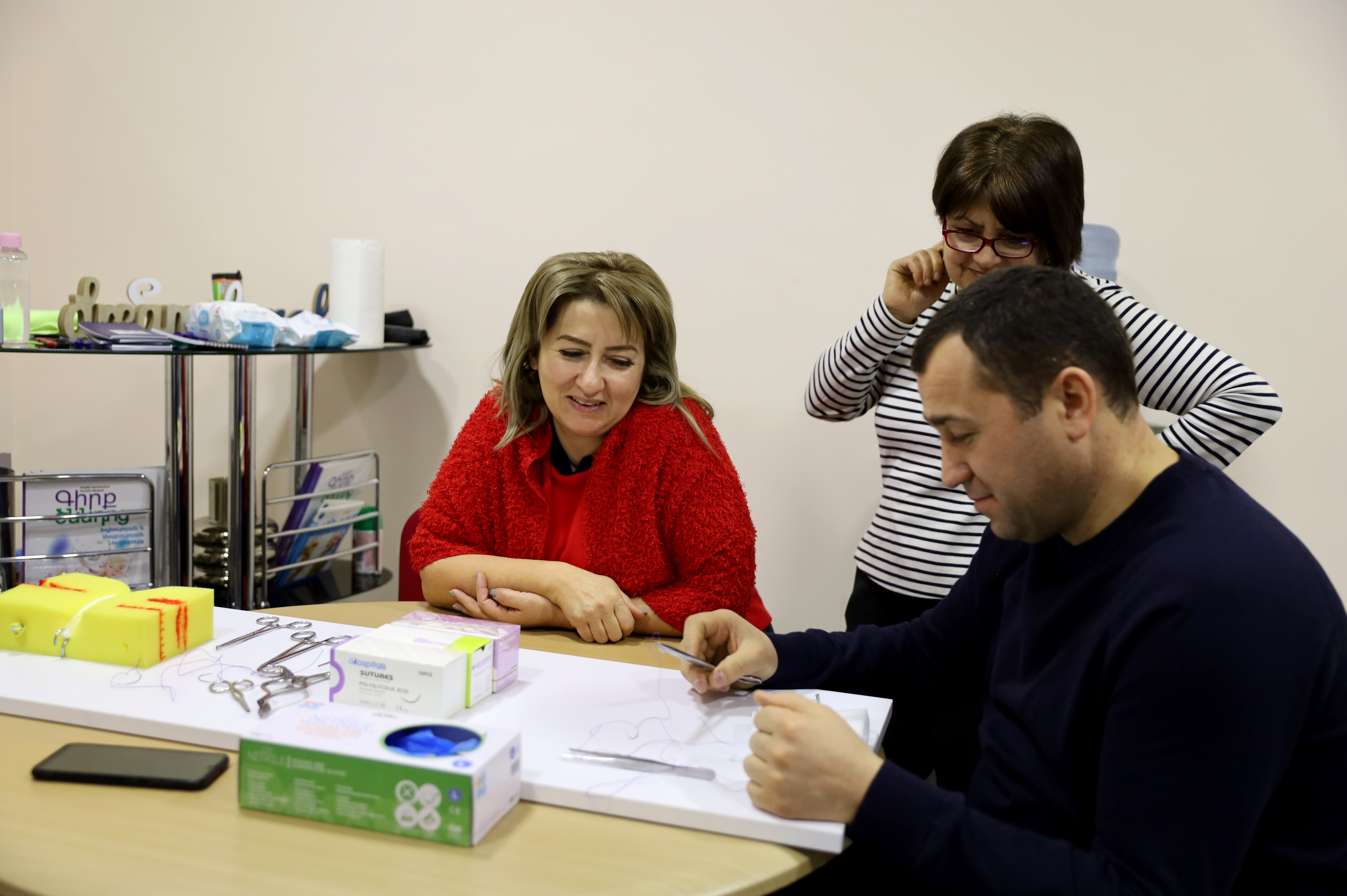
Speaking about the course, Mrs. Harutyunyan particularly emphasizes its practical component.
"In the past, we had theoretical courses that were exhausting, but here it is especially important that theory is combined with practice. The trainers explain well and are very patient. We could practice on the simulation manikin about 4-5 times. When we made a mistake, they corrected us, and we tried again until we got it right... The most valuable aspect of this course is that your hands become used to doing the exercise."
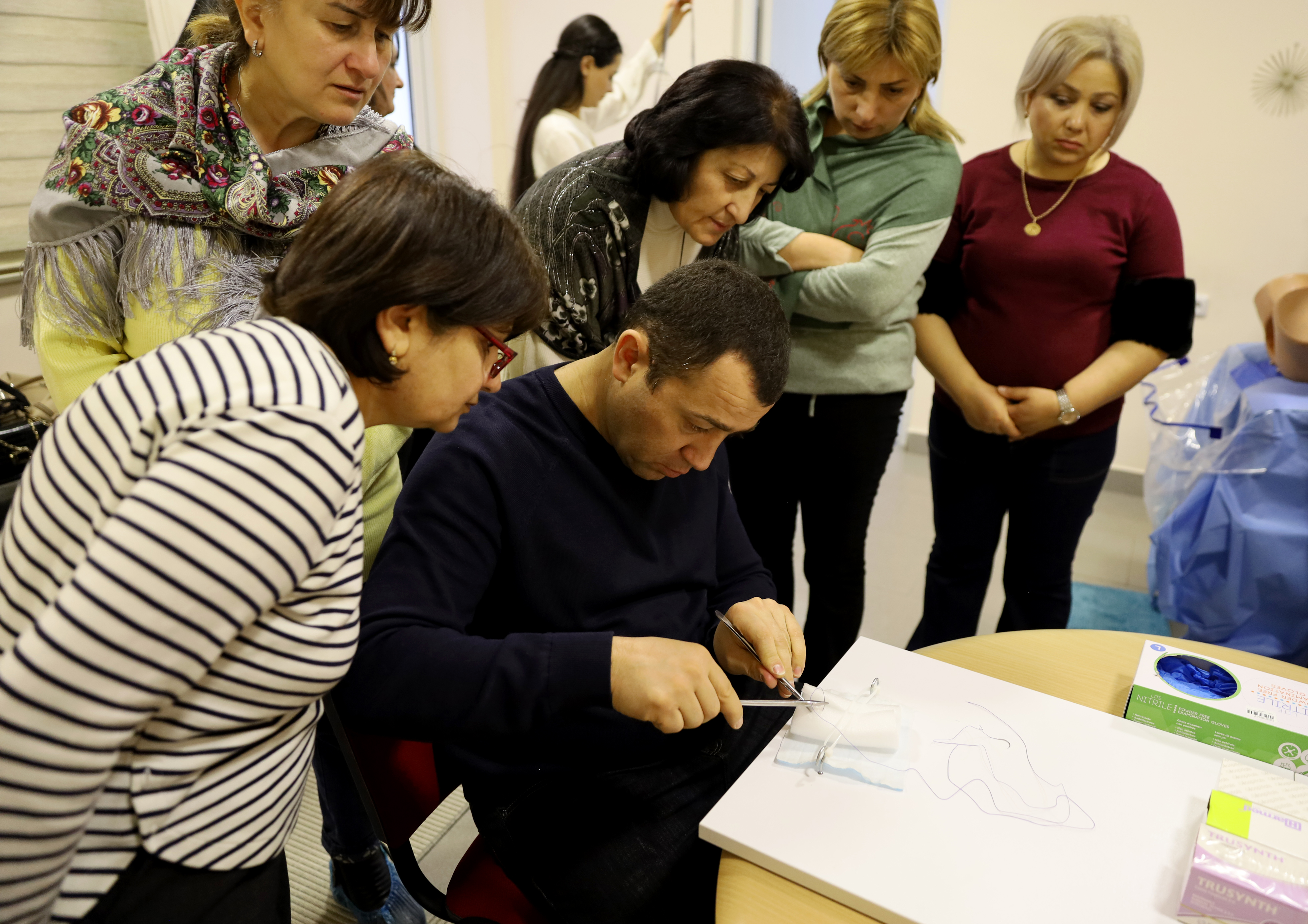
Vigen Ghulunts, the head of the Obstetrics and Gynecology Department at Goris Medical Center, also participated in the training.
"We should always find a room to learn about the latest developments. Periodically, every specialist should update their knowledge," notes Vigen Ghulunts, emphasizing the significance of such initiatives. "These trainings will be especially beneficial for midwives, as their role in the delivery process is substantial. Through these sessions, they also practice simulations and learn important skills."
Lida Hoveyan, an obstetrician-gynecologist at Gavar Medical Center, shares her perspective after two years of practicing as a doctor.
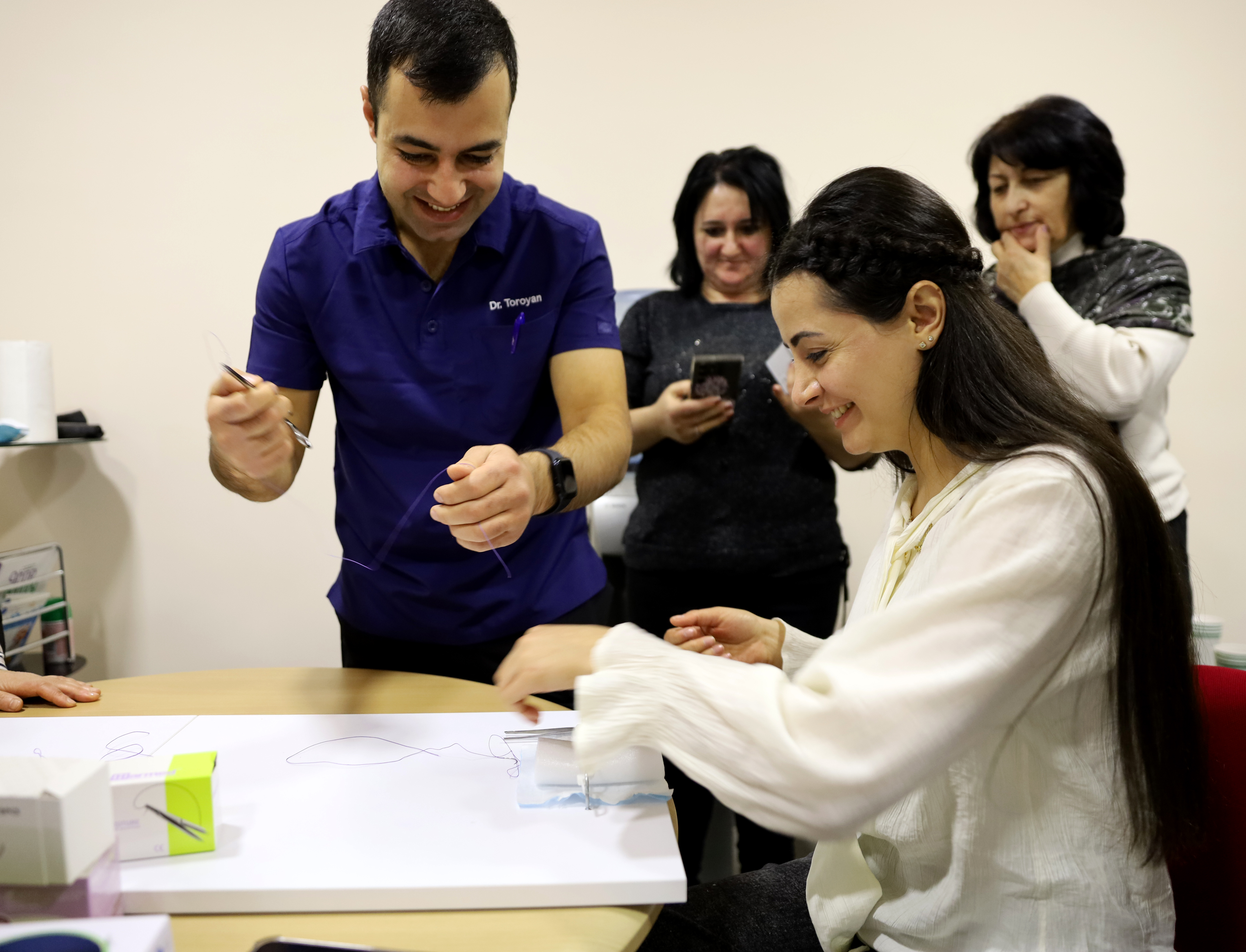
"The practical knowledge we gained here, especially, makes us more capable. We now understand the peculiarities of childbirth, and if we apply them correctly, we can even avoid unnecessary cesarean sections."
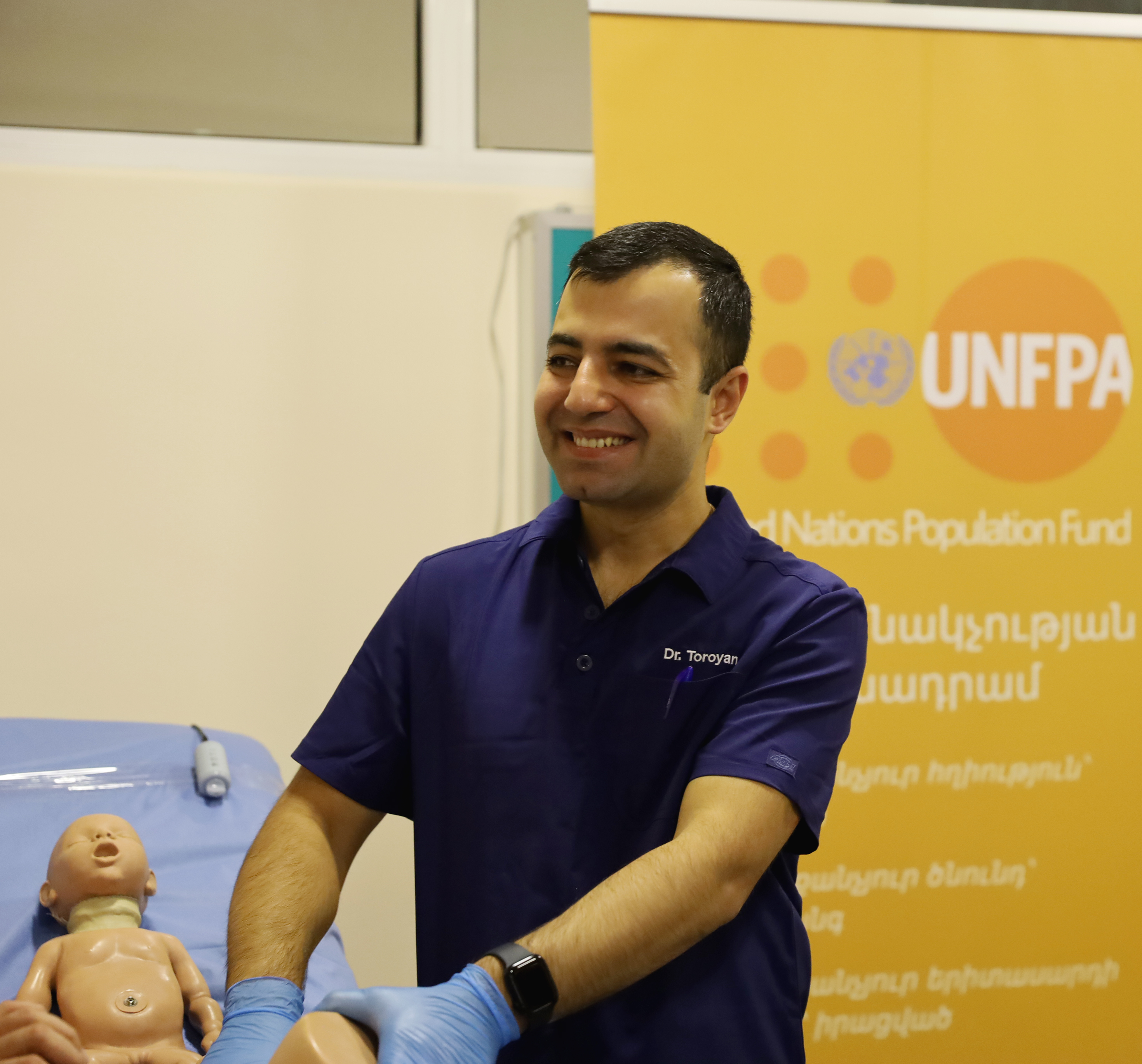
"This is the 5th training, with more than 50 participants from six regions. Witnessing the enthusiasm of professionals is motivating. The course is structured to combine theoretical knowledge with practical skills. We not only inform participants about global best practices but also provide hands-on experience. Seeing from the sidelines, offering suggestions, and practicing on the simulation manikin are crucial aspects. It has been proven that if a specialist knows the techniques on a manikin, they replicate the same actions in a real situation due to the automation of actions," explained trainer, obstetrician-gynecologist Alyosha Toroyan from the Republican Institute of Reproductive Health, Perinatology, Obstetrics, and Gynecology.
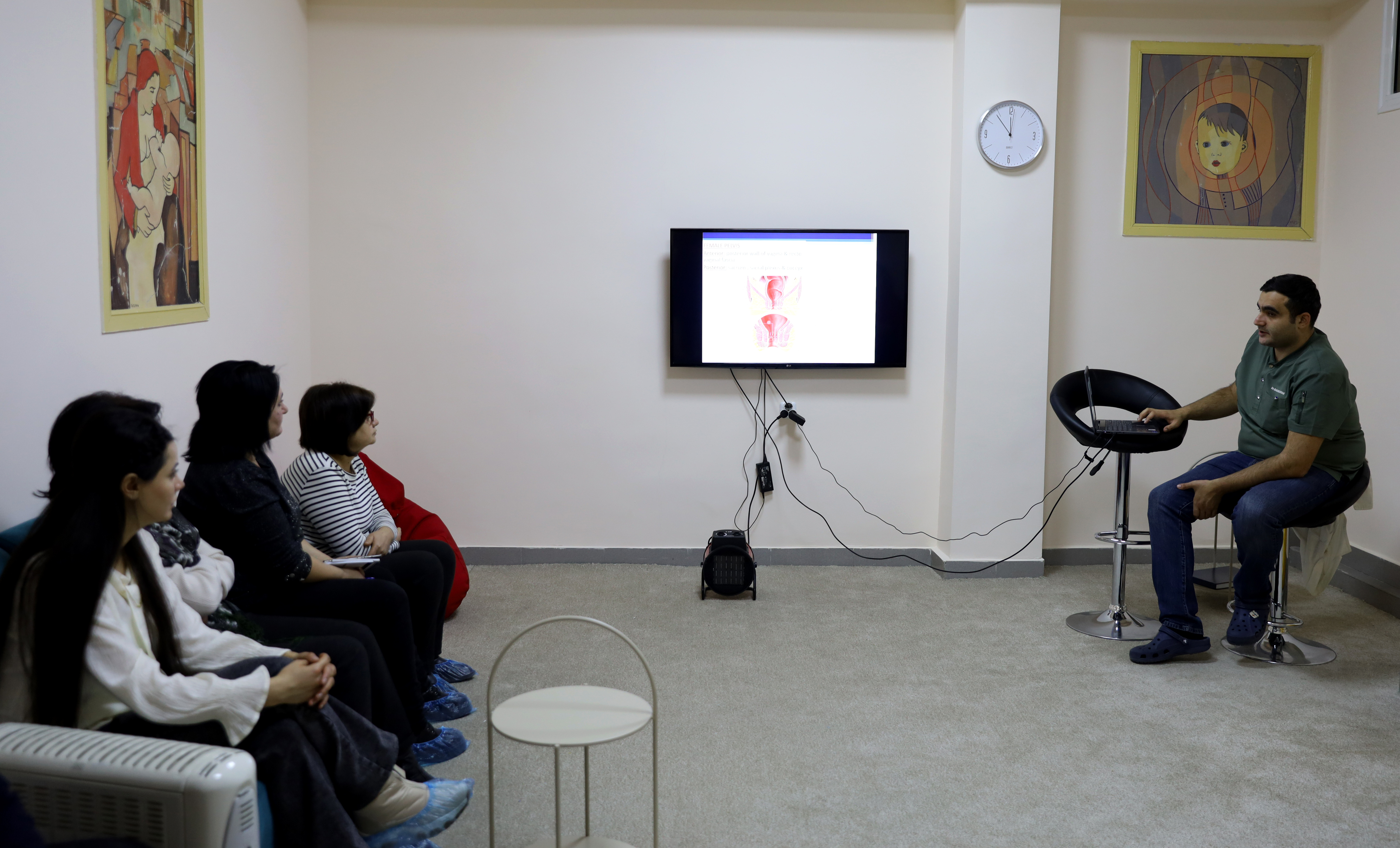
At the end of the training, participants received both theoretical and practical Continuous professional development credits. A new round of training is planned for next year.
"It is essential for every obstetrician-gynecologist to update their knowledge and acquire new skills, especially in emergency situations. Such knowledge is critical for medical workers in regions, where, during humanitarian crises, transferring patients to central facilities may not be feasible. In many communities, midwives become vital players in the primary care stage, and their preparedness and knowledge can truly save lives," mentioned Narine Beglaryan, SRH Analyst at the UNFPA, during her speech at the meeting."
The initiative was conducted within the framework of "Creating safe spaces for displaced women and girls and implementing capacity building, awareness raising activities on SRH" Programme that is financed by UNFPA and implemented in cooporation with OxYGen Foundation.

